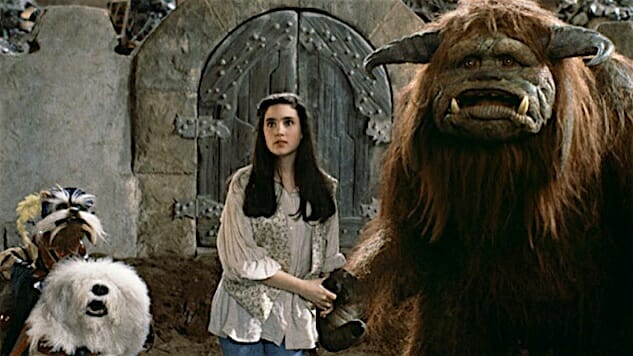“It’s Only Forever…”: Introducing a Teen to the Teen Canon of the 1980s
Part 11: Labyrinth

We’ve spent a good amount of time focusing on how well the 1980s teen canon fares in the eyes of today’s teenager (played here, by my daughter). But the ’80s weren’t all John Hughes chestnuts about coming of age on the wrong side of the tracks, of course. There were other sorts of teen movies, including some that, like adolescents themselves, weren’t really kid films or adult films but weird and sometimes uneasy combinations of the two. Some of them were, for example, fantasias that combined human live action with Muppets, fantasy stories about sullen teen girls having to retrieve baby brothers who’d been abducted by goblins. And one in particular had Jim Henson Creatures sharing screen time with … David Bowie.
Labyrinth, not surprisingly, was a box office flop. Its demographic target was arguably old for Jim Henson and young for Bowie’s freakish sexual charisma—it was a confusing film. There were a lot of interesting pieces, but somehow it didn’t come together quite right.
But Bowie.
-

-

-

-

-

-

-

-

-

-

-

-

-

-

-

-

-

-

-

-

-

-

-

-

-

-

-

-

-

-

-

-

-

-

-

-

-

-

-

-








































